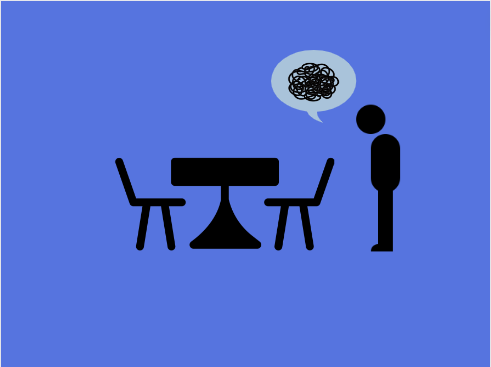The mission of the district is to “[provide] opportunities for students to reach their academic and personal potential in a changing world.”
When it comes to hiring teachers and supporting athletics, organizations and other extracurricular activities, our school lays an exceptional foundation for its students to succeed.
However, our school misses the mark when it comes to implementing academic policies that foster a fair learning environment and positive real-world habits. Chief among these notions is the school’s late work policy.
According to the student handbook, “the expectation for students at Lovejoy High School is that all work assigned is turned in on time.”
In case students fail to live up to this too-good-to-be-true ideal, the handbook continues to explain that “If the student turns in [a late] assignment, full credit is given. If the student fails to turn in the assignment, the teacher shall determine whether the issue is a cognitive or behavioral one. If it is cognitive, tutorials will continue with the teacher. If it is behavioral, the student should be referred to their Assistant Principal.”
Essentially, the handbook makes a distinction that late work can be a byproduct of either a lack of academic understanding or a lack of behavioral discipline. This idea suggests that because late work can be a behavioral issue, it is not fair to enforce an academic penalty on it. This logic is utterly false.
Whether it’s studying for a test, completing a group project or turning in a daily assignment, every academic procedure in school requires behavioral discipline. To suggest that behavior and cognition are entirely different issues is simply not true.
I’m not saying that every class is easy and everyone should understand every assignment. That would be far from the truth, considering the plethora of rigorous AP and Pre-AP courses the school offers. However, a struggling student should have the discipline to make tutoring arrangements and seek additional instruction from his or her teacher in order to be more successful.
We could continue to dispel the so-called distinction between cognitive and behavioral shortcomings, but the real question remains.
Why does it even matter?
A college professor isn’t going to check the gradebook, call you to his or her desk, debate whether there was a cognitive or behavioral lapse and tell you that you need to complete your assignment.
By that same token, the IRS isn’t going to care about whether your failure to turn in taxes on time was a cognitive or behavioral lapse. Chances are, there’s going to be a penalty and possibly an agent at your front door.
The current late work policy clearly cultivates these issues in students’ futures, but there are short-term consequences of the policy as well. When you allow irresponsible students to turn in late work scot-free, responsible students have no incentive to follow the rules.
But it is actually the teachers who get the shortest end of the stick when it comes to late work. Students have the “luxury” of waiting until the end of the grading period to turn in late work, but teachers must submit grades according to strict deadlines. It’s already hard enough to deal with the challenging expectations of the Lovejoy Community, yet our teachers continue to constantly go the extra mile for us by making special tutoring arrangements, writing us college recommendation letters, coaching our athletic teams, or supporting us at our fine arts festivals.
We as students at the very least can turn in our work–work that is assigned for our own good so that we may grow in our learning–to our teachers in a timely manner.
The Lovejoy Graduate Profile states that students are to be intellectually equipped, open to the challenges of learning, well-rounded, engaged in a healthy lifestyle and fair and respectful of others. By not enforcing late work penalties, the school is undermining all of these admirable qualities.
























Collin Thomson • Jan 18, 2019 at 12:50 pm
In my opinion, not everyone loses. Certainly, the teachers and students suffer, but the school system wins big. The school system itself doesn’t care about students’ success later in life or a teacher’s stress grading a hundred papers in a day; what they care about is how they look to the outside observer. I think the only reason we are rated as highly as we are academically is because they make it impossible for students to fail or to take the full consequence of their failure to work. The system makes it very hard to fail: we can turn in assignments months past the due date, we can retest up to a high grade with little work, and sometimes they even manipulate grades to ensure students do not fail (true story, it happened to someone I know). In short, the school itself wins from these beyond-safety-net policies. In fact, they may even be “ensuring our success” in order to draw more people and funding, all built on phony stories of success.